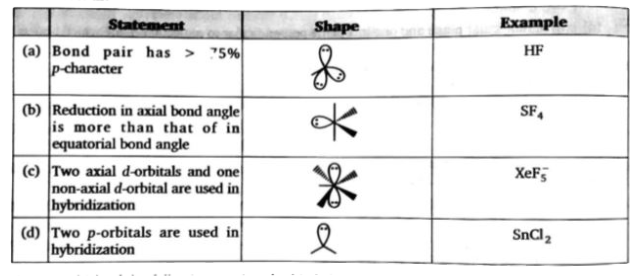If hardness of water sample is 200ppm, then select the incorrect statement:
Mass ratio ofCaCO3toH2Ois0.02100
Mole ratio ofCaCO3toH2Ois3.6×10−5
Mass ofCaCO3present in hard wateris0.2g/L
1 miliequivalent ofCaCO3present in 1kg of hard water
The correct Answer is:D
To solve the problem of determining the incorrect statement regarding the hardness of a water sample with a hardness of 200 ppm, we can follow these steps:
Step 1: Understand the Definition of Hardness in ppm
The hardness of water in ppm (parts per million) is defined as the mass of calcium carbonate (CaCO₃) present in a given mass of water. Specifically, it is calculated as:
Hardness (ppm)=mass of CaCO3mass of water×106
Given that the hardness is 200 ppm, this means:
200 \text{ g of CaCO}_3 is present in } 10^6 \text{ g of water.}
Step 2: Calculate the Mass Ratio of Calcium Carbonate to Water
To find the mass ratio of calcium carbonate to water:
Mass ratio=200 g106 g=2×10−4
This can also be expressed as:
0.02100
Thus, the first option stating that the mass ratio of calcium carbonate to water is 0.02/100 is correct.
Step 3: Calculate the Mole Ratio of Calcium Carbonate to Water
Next, we calculate the number of moles of calcium carbonate and water:
- Moles of CaCO₃:
Moles of CaCO3=200 g100 g/mol=2 moles
- Moles of water (H₂O):
Moles of H2O=106 g18 g/mol=10618 moles
Now, calculate the mole ratio:
Mole ratio=Moles of CaCO3Moles of H2O=210618=36106=3.6×10−5
Thus, the second option stating that the mole ratio of calcium carbonate to water is 3.6×10−5 is correct.
Step 4: Calculate the Mass of Calcium Carbonate per Liter of Water
To find the mass of calcium carbonate in 1 liter of water:
- Since 106 g of water=1000 liters:
Mass of CaCO3 in 1 liter=200 g1000 liters=0.2 g/liter
Thus, the third option stating that the mass of calcium carbonate present in hard water is 0.2 g/liter is correct.
Step 5: Calculate Milliequivalents of Calcium Carbonate in 1 kg of Water
Now, we need to determine the milliequivalents of calcium carbonate in 1 kg of water:
- Convert 200 g of CaCO₃ to milligrams:
200 g=200×103 mg
- Calculate the number of millimoles:
Millimoles of CaCO3=200×103 mg100 mg/mmol=2000 mmol
- The n-factor for CaCO₃ (which dissociates into Ca²⁺ and CO₃²⁻) is 2:
Milliequivalents=Millimoles×n-factor=2000 mmol×2=4000 meq
The fourth option states that 1 milliequivalent of calcium carbonate is present in 1 kg of hard water, which is incorrect.
Conclusion
The incorrect statement among the options is the fourth one.
---
The hardness of water in ppm (parts per million) is defined as the mass of calcium carbonate (CaCO₃) present in a given mass of water. Specifically, it is calculated as:
Hardness (ppm)=mass of CaCO3mass of water×106
Given that the hardness is 200 ppm, this means:
200 \text{ g of CaCO}_3 is present in } 10^6 \text{ g of water.}
To find the mass ratio of calcium carbonate to water:
Mass ratio=200 g106 g=2×10−4
This can also be expressed as:
0.02100
Thus, the first option stating that the mass ratio of calcium carbonate to water is 0.02/100 is correct.
Next, we calculate the number of moles of calcium carbonate and water:
- Moles of CaCO₃:
Moles of CaCO3=200 g100 g/mol=2 moles
- Moles of water (H₂O):
Moles of H2O=106 g18 g/mol=10618 moles
Now, calculate the mole ratio:
Mole ratio=Moles of CaCO3Moles of H2O=210618=36106=3.6×10−5
Thus, the second option stating that the mole ratio of calcium carbonate to water is 3.6×10−5 is correct.
To find the mass of calcium carbonate in 1 liter of water:
- Since 106 g of water=1000 liters:
Mass of CaCO3 in 1 liter=200 g1000 liters=0.2 g/liter
Thus, the third option stating that the mass of calcium carbonate present in hard water is 0.2 g/liter is correct.
Now, we need to determine the milliequivalents of calcium carbonate in 1 kg of water:
- Convert 200 g of CaCO₃ to milligrams:
200 g=200×103 mg
- Calculate the number of millimoles:
Millimoles of CaCO3=200×103 mg100 mg/mmol=2000 mmol
- The n-factor for CaCO₃ (which dissociates into Ca²⁺ and CO₃²⁻) is 2:
Milliequivalents=Millimoles×n-factor=2000 mmol×2=4000 meq
The fourth option states that 1 milliequivalent of calcium carbonate is present in 1 kg of hard water, which is incorrect.
The incorrect statement among the options is the fourth one.
Topper's Solved these Questions
- STOICHIOMETRYBOOK - NARENDRA AWASTHI ENGLISHCHAPTER - STOICHIOMETRYEXERCISE - Match the Colum-II
6 Videos
- STOICHIOMETRYBOOK - NARENDRA AWASTHI ENGLISHCHAPTER - STOICHIOMETRYEXERCISE - Subjective Problems
20 Videos
- SOLID STATEBOOK - NARENDRA AWASTHI ENGLISHCHAPTER - SOLID STATEEXERCISE - Subjective Problems
13 Videos
- THERMODYNAMICSBOOK - NARENDRA AWASTHI ENGLISHCHAPTER - THERMODYNAMICSEXERCISE - Level 3
89 Videos
Similar Questions
Select the incorrect statements:
View SolutionSelect the incorrect statements:-
View SolutionSelect the incorrect statements
View SolutionSelect the Incorrect statements:

View SolutionSelect the incorrect statements :-
View SolutionSelect the incorrect statement(s):
View SolutionSelect the incorrect statement(s):
View SolutionSelect the incorrect statement(s):
View SolutionSelect the incorrect statement(s):
View SolutionSelect the incorrect statement(s):
View Solution